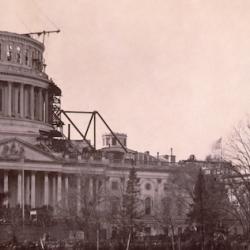Charles Taylor (Modern Social Imaginaries) observes that one of the great boasts of modernization has been to pacify war-mongering noblemen—to turn swords, if not to ploughshares, at least to shares: “the transition to the commercial stage was understood as having effected the great internal pacification of modern states. This society dethroned war as the highest human activity and put in its place production. It was hostile to the older codes of warrior honor, and it tended toward a certain leveling.”
Not everyone approved, and not all the opposition came from the military classes: “With the coming of a commercial society, it seemed that greatness, heroism, and full-hearted dedication to a nonutilitarian cause were in danger of atrophy, even of disappearing from the world. One form this worry took was the concern about men, following the ethos of polite society, becoming ‘effeminate,’ losing their manly virtues, which was an important recurring theme in the eighteenth century. At the most primitive level, this could emerge in a rebellion of upper-class rowdies against the polite conventions of the age; at a slightly higher level perhaps, in the return of duelling in eighteenth-century England.”
One response was to advocate “the ethic of civic humanism as a rival to the ethos of commercial society, or perhaps as a compensation for the dangers—of enervation, corruption, loss of liberty—that this modern form brought with it.” Taylor sees another expression of the same anxiety in the “fierce denunciation of the modern moral order and everything it stands for, as we see with Nietzsche,” whose popularity “shows that his devastating critique still speaks to many people today. The modern order, though entrenched, perhaps even because entrenched, still awakens much resistance.”















